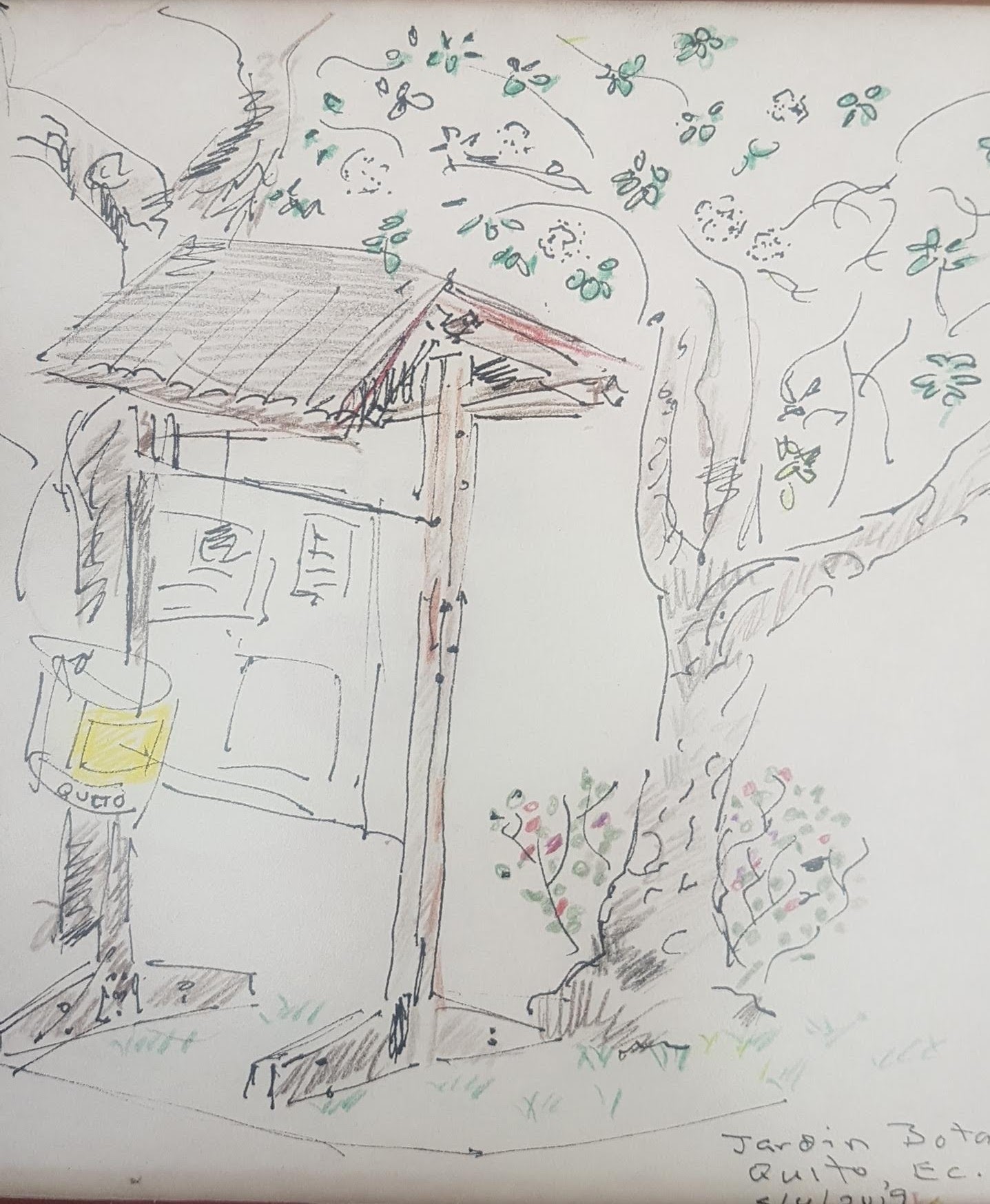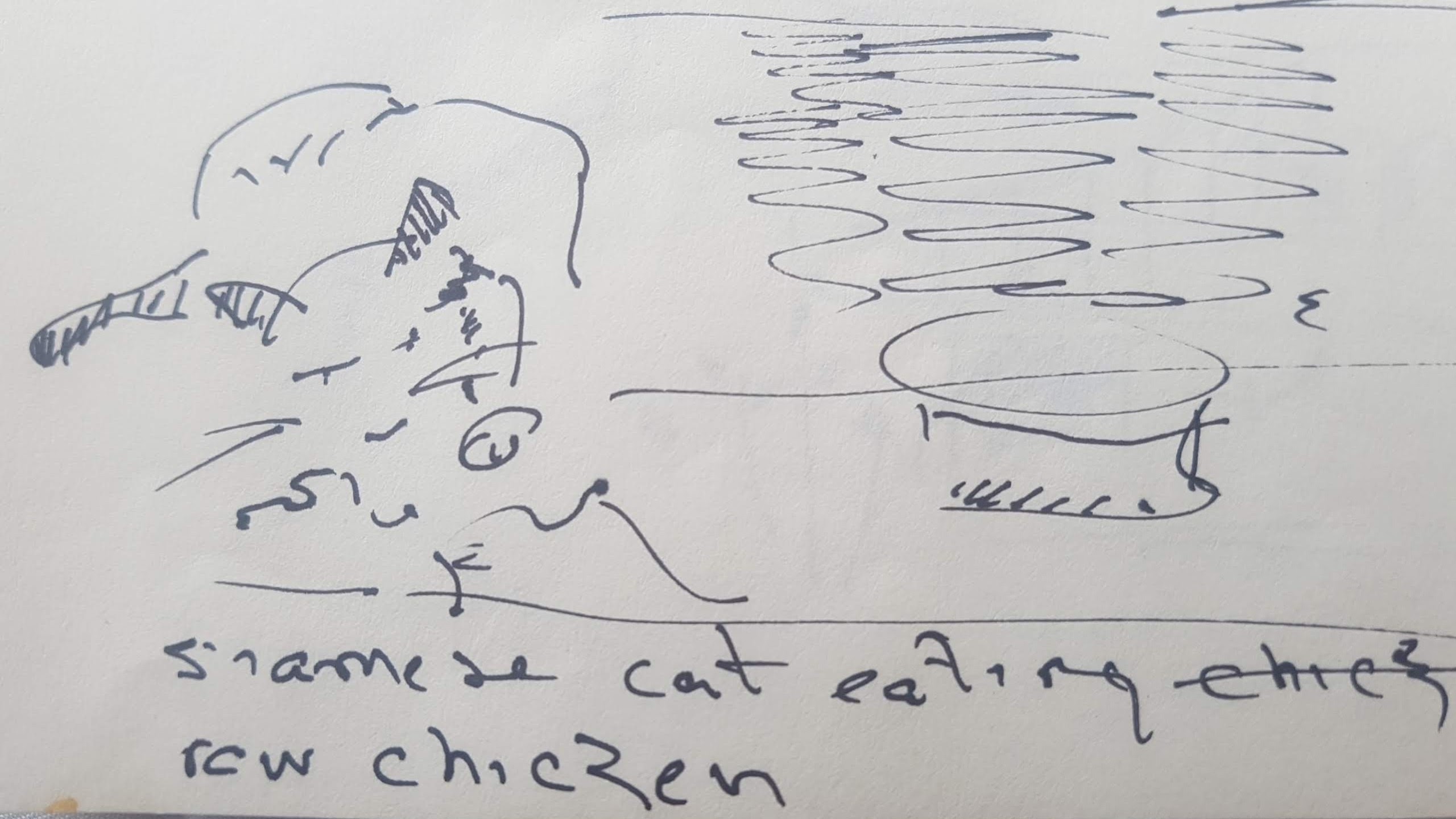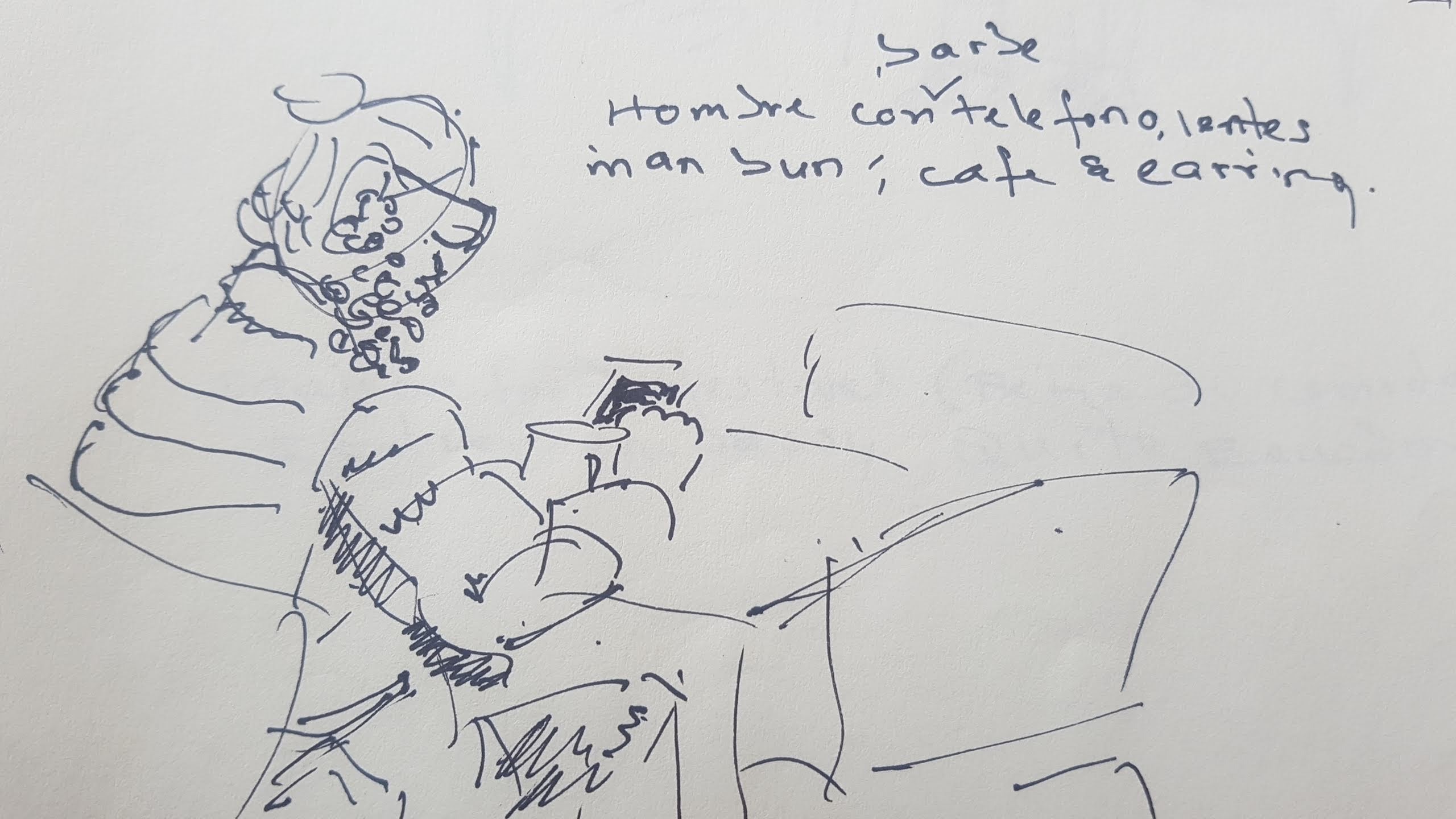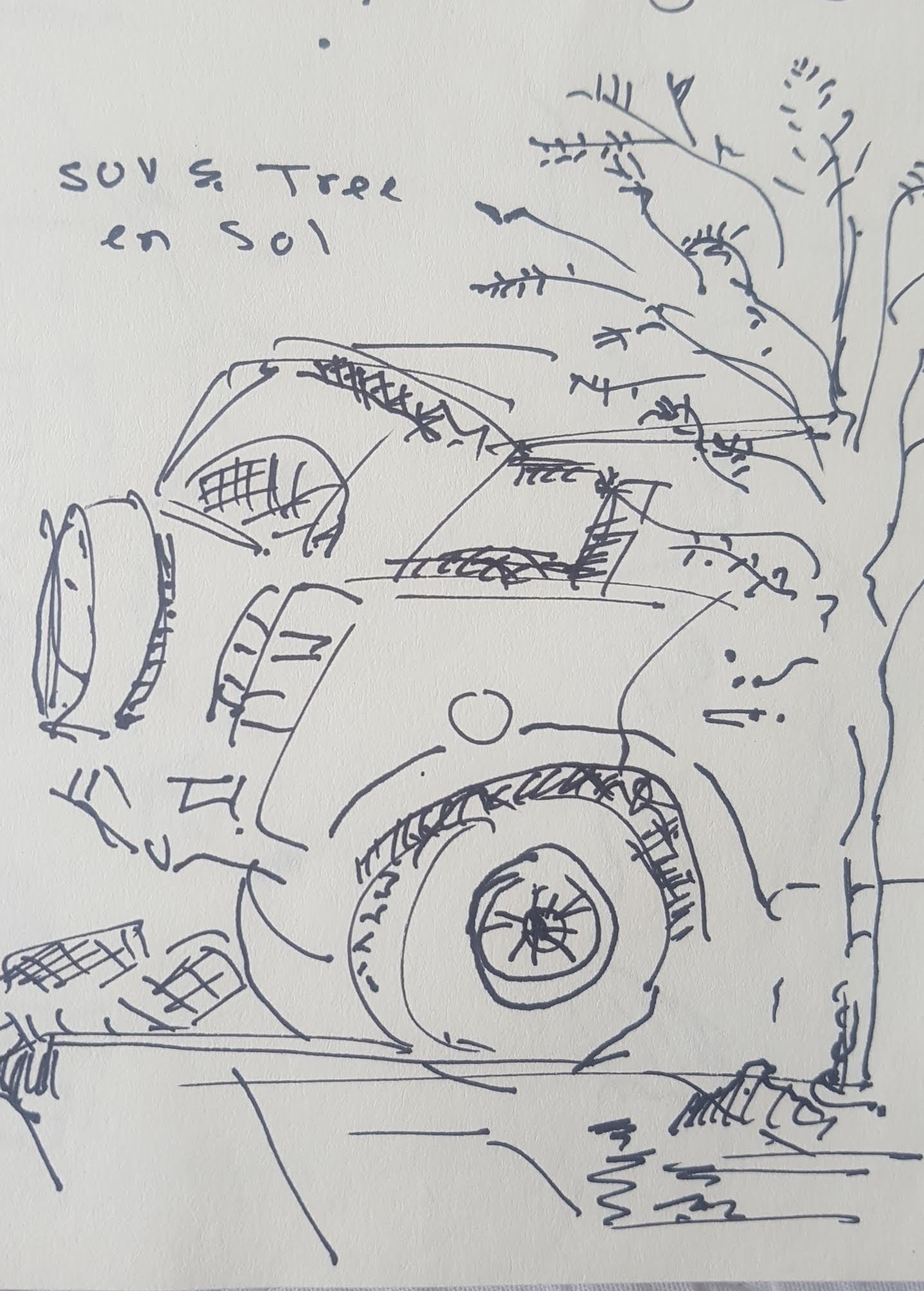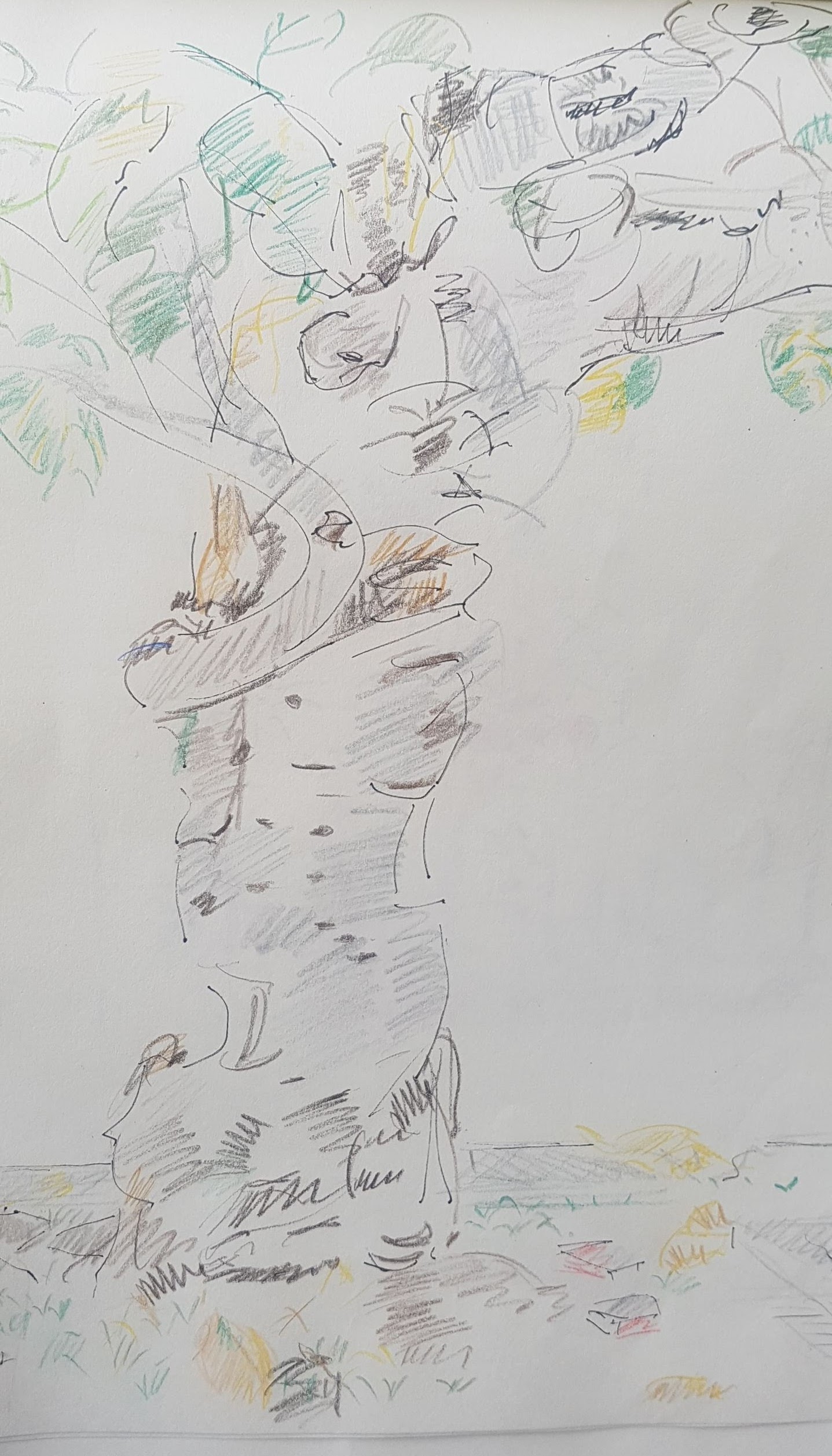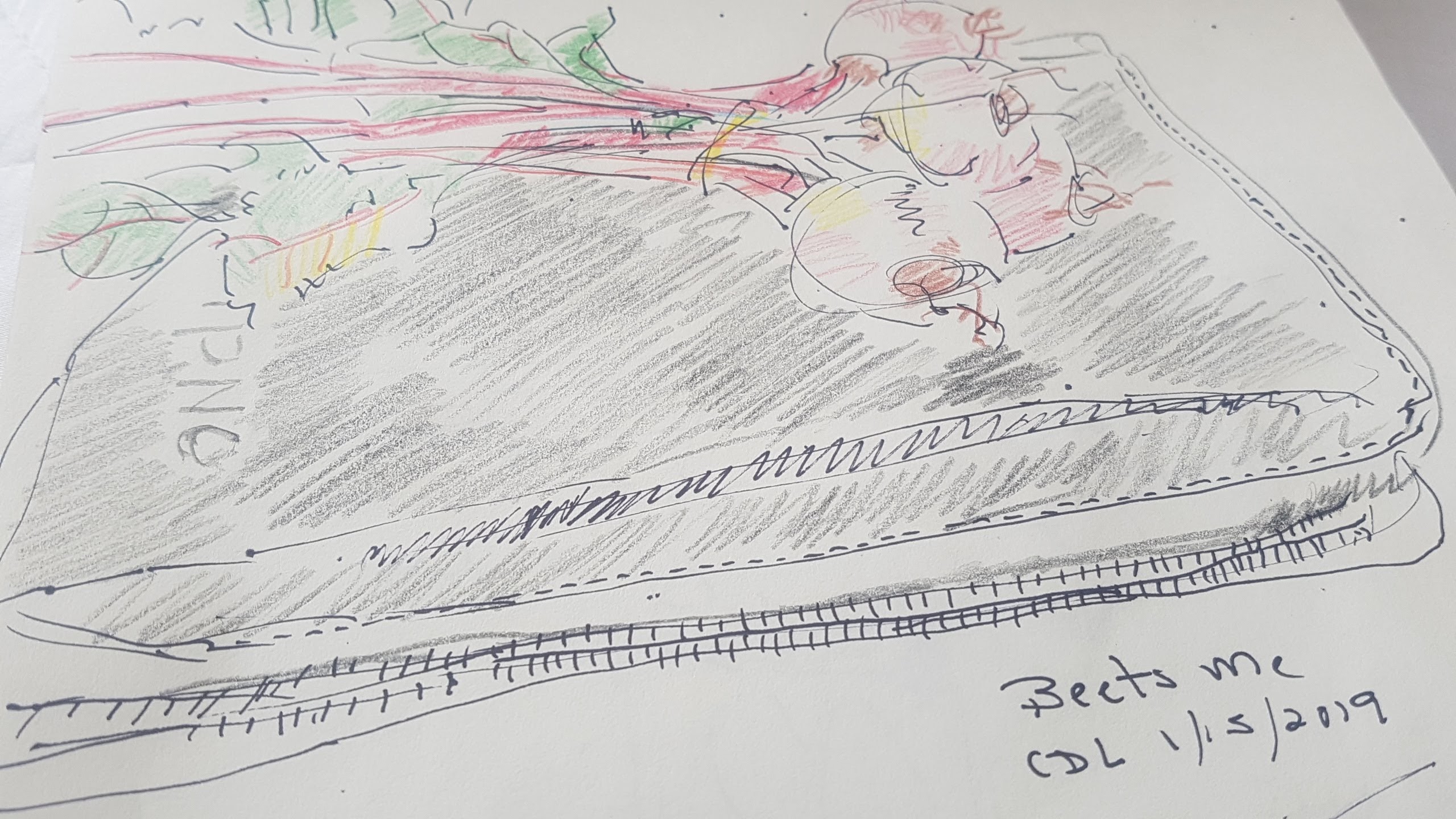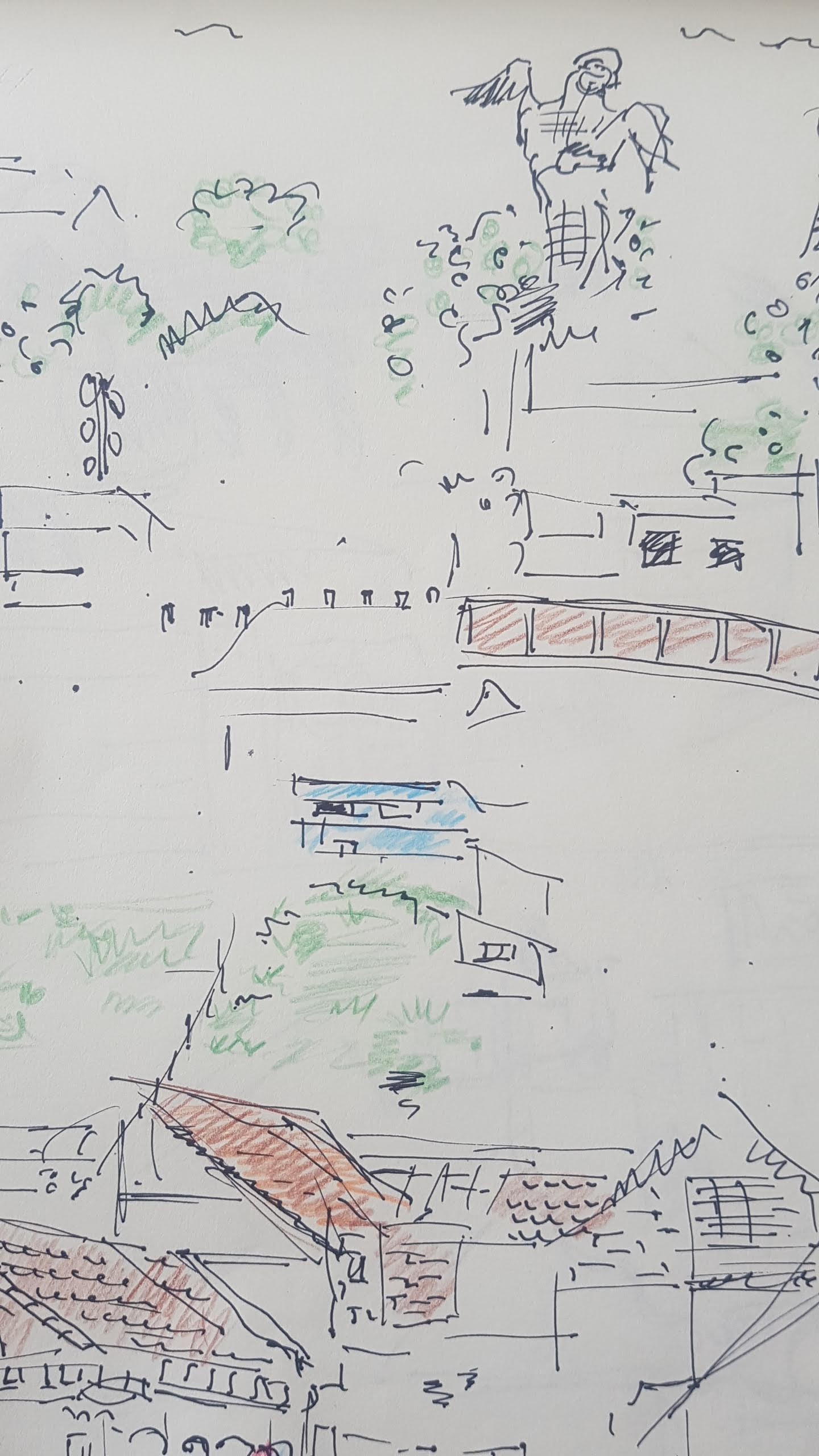We live surrounded lately by dark made-up events, people and stories confabulations. I figured I might as well make up one of my own with some light.
The Fable of the Sleeping Troubadour & the Gypsy Princess
A troubadour lived in a village long ago and far away. He made his way telling stories and singing in return for a meal and a bed for the night. Once he had a family, but something happened and he was alone.
He met other travelers in the village who told him of their adventures. For a night or two they shared songs and stories by the fire. They laughed and drank and entertained each other against the darkness and cold and loneliness. Then the other travelers went out into the world again, bidding each other to be safe and happy until next time, leaving him behind.
The troubadour was no longer young, but neither was he too old to dream. Everywhere he went he encountered ghosts and memories of his former life. Some of these he remembered fondly. Others were so sad he could barely stand to live with them. His friends and relatives told him, ‘Forget the past. Stop dwelling on your memories.’ They were part of his life that was gone. He wondered about the future and what would become of him.
The travelers he met in the village told the troubadour about a land to the south in the middle of the world where the sun shone and winter never came. The troubadour decided he wanted to see it. His friends and relatives warned him, ‘It’s dangerous. Stay here with us where it’s safe’. The troubadour answered, ‘You tell me me to forget sad memories and the past. Alright, I’m going to leave and make new ones.
The troubadour traveled through the jungle and saw strange beasts. He paddled through rivers and lagoons. He drank with local people and ate their food. They spoke a a language he didn’t know, but he laughed and talked with them anyway. They welcomed him. The head of one village offered the troubadour his daughter in marriage. ‘Stay here with us. You’ll have land. You can have many children and become rich.’ The troubadour considered the offer. He thanked the man and said, ‘I am a stranger and traveler in your lands. My settling down days are over.’
 After many miles and many days the troubadour arrived at a great city in the land to the south where a gypsy princess lived. The gypsy princess had the face and spirit of a girl but was no longer young either. She had had lovers but never settled down. She enjoyed children, but had none of her own. As a maiden she went to distant lands on her own, carrying her harp and sword. She fought battles and suffered wounds and deep scars. Even those she trusted to care for her had hurt her. Maybe that’s why she left.
After many miles and many days the troubadour arrived at a great city in the land to the south where a gypsy princess lived. The gypsy princess had the face and spirit of a girl but was no longer young either. She had had lovers but never settled down. She enjoyed children, but had none of her own. As a maiden she went to distant lands on her own, carrying her harp and sword. She fought battles and suffered wounds and deep scars. Even those she trusted to care for her had hurt her. Maybe that’s why she left.
After many years she finally returned home to the city of her birth to rest. But she felt strange among her own family and friends. Her aging parents worried about her. ‘What will become of her? ‘There must be something wrong with me,’ the gypsy princess thought. Her family, friends country-men and women told her, ‘Who do you think you are? Why don’t you get married and settle down?” No one knew she was a gypsy princess. Or if they knew, they forgot to tell her.
When the troubadour arrived in the city of the gypsy princess, the journey had begun to make him feel anxious and afraid. He wasn’t sure traveling all that way had really been a good idea. He wanted to rest. Generally people were kind, but it tired him to constantly learn a new language and new ways. On his second day he came across a magnificent mansion. The people there gave him something to eat and a place to stay for the night. In return he sang a song and told a story about his home to the north. When he lay down to sleep, the troubadour didn’t wake up. His songs and stories were silent. His memories went away, both the happy and sad ones. He knew nothing that went on around him in the world any longer. His friends and family forgot about him as though he never existed. Thorns and thick vines grew up around the mansion. The people who owned it went away. What had once been a resplendent home filled with life and happiness appeared as a crumbling ruin to passersby .
Each morning the gypsy princess woke in the bed she had slept in as a girl. Her parents slept downstairs. Possessions of her childhood surrounded her. But now when she had nightmares, no one comforted her. Since her parents were getting older, she decided she would devote herself to caring for them. If that would be her life, so be it.
Sometimes she would take out her harp and sword and look at them. When she did her old wounds twinged. The sword bore the nicks and scars of her battles. The harp was tarnished and missing a string. She would carefully put them away and tell her parents she was leaving. Then she went out into the city to meet her friends. They would go to entertainments and talk about when they were younger. Many of them were married and had children. Her former suitors had gone on to make their own lives. Once she imagined marrying a star in one of the entertainments. When she saw her friends’ comfortable lives, her old scars and wounds bothered her even more. She grew angry and frightened of the busyness of life in the city, and the obliviousness of people. The streets were filled with noise and traffic and people with lives unlike her own. She felt unconnected, floating in the world.
 On her walks the gypsy princess often passed a crumbling old mansion covered in vines and surrounded by cedron trees. It had once been owned by a local family. Some tragedy befell them and their home was abandoned. There was a beauty about it that intrigued her. She returned again and again. Sometimes she climbed the wall to get a better look and see what might be inside. But the vines and thorns were too thick to see more.
On her walks the gypsy princess often passed a crumbling old mansion covered in vines and surrounded by cedron trees. It had once been owned by a local family. Some tragedy befell them and their home was abandoned. There was a beauty about it that intrigued her. She returned again and again. Sometimes she climbed the wall to get a better look and see what might be inside. But the vines and thorns were too thick to see more.
One evening she noticed dim light shining in one room of the mansion. The next evening she took her sword from the drawer. She lifted down her dusty harp from its place on the wall. She told her parents she was going out for a walk as usual. The streets of the city were quiet. The moon shone strongly through the leaves of the cedron trees. She went straight to the old crumbling mansion. With the harp slung over her shoulder, she lay the sword on top of the wall and hoisted herself up onto it. She peered through the dense foliage toward the window on the second floor where the light shone. Twisted trees with thorns filled the yard like beasts and dragons. Only one spot in the yard near the wall was clear. The gypsy princess leaped down and landed with a thud. Her knees bent and her feet hurt. Her old wounds pained her. She shook her curly red hair and gritted her teeth. She grabbed the sword from atop the wall and began hacking through the undergrowth. Her arm and shoulder found their rhythm. Though nicked and long disused, the blade retained its power to cut. The thorns drew blood from her fair skin. She raised her arm to shield her face. But the sword did its work. Branches fell to the ground beneath her feet. The night was silent except for crickets. The sounds of the city faded. She cleared a path until she stood outside the mansion wall covered in vines. She stood for a moment looking up at the window, then began to climb.
 She turned her head to avoid branches hitting her in the face. She inhaled the scent of bird droppings. Her legs and arms shook. Finally she reached the second-floor window. She pulled herself over the windowsill and looked in. Through a gap in the heavy curtains the moonlight revealed a figure on a bed. It was a man. She could see that much. A graying beard covered his face. His arm lay across his face. He was sleeping. The glass was broken from one of the window panes. The gypsy princess reached in and undid the latch, swung the window open, and stepped inside.
She turned her head to avoid branches hitting her in the face. She inhaled the scent of bird droppings. Her legs and arms shook. Finally she reached the second-floor window. She pulled herself over the windowsill and looked in. Through a gap in the heavy curtains the moonlight revealed a figure on a bed. It was a man. She could see that much. A graying beard covered his face. His arm lay across his face. He was sleeping. The glass was broken from one of the window panes. The gypsy princess reached in and undid the latch, swung the window open, and stepped inside.
The room was still and quiet. Dust and broken plaster covered the floor. As the gypsy princess approached the bed, the man’s chest rose and fell. His nose was straight and his lips full. Lines showed around his mouth, but his chin was strong. His hair, which at first appeared entirely gray, was mostly covered in plaster dust. The gypsy princess reached out to touch his sleeve, but he did not stir. She touched his hand. His skin was warm. She looked down, wondering what to do. Should she she let him slumber? She touched his face gently. She felt his beard with her fingers, touched his strong nose. He was not an apparition. He had flaws and imperfections on his skin, a scar on his cheek. A bit of dried saliva showed at the corner of his mouth. Some impulse made her touch his hair. When she brushed away the dust, gray showed there like frost. She leaned down and kissed his lips, feeling their warmth. She lay her head on his chest. Her heart beat twice to every one of his. She unslung the harp and began to play. Sound filled the room. The strings miraculously sounded notes as she plucked them with her fingers. Slowly at first and uncertainly she remembered a tune from her childhood. The stranger drew a deep breath, then another. His arm moved away from his face and he opened his eyes. A puzzled expression crossed his face.
‘I’ve been asleep.’
She didn’t understand his words as she continued to play.
He looked around the room, then at her. His eyes were blue in contrast to her own of warm hazel. He spoke again, and suddenly his words were as clear as water.
‘Yes,’ she answered. ‘I found you.’
‘You are beautiful,’ he said.
She shrugged. ‘I am a little strange.’
He shrugged. ‘And I am a lost stranger.’
The troubadour touched her face and smiled at her. The gypsy princess took his hand. It was warm and strong. The mansion was no longer derelict. Dust and plaster no longer lay on its floor. Birds sang and the smell of the cedron tree came through the open window. Outside darkness gave way to light.
 They stood and embraced. The mansion became a cottage by the sea. And instead of being in the city filled with noise and confusion and worry, they found themselves in a village surrounded by friends. Outside waves rolled against the shore and the delicious smell of the ocean surrounded them. From that day forward the gypsy princess and the troubadour lived together surrounded by light and love and laughter. — CDL
They stood and embraced. The mansion became a cottage by the sea. And instead of being in the city filled with noise and confusion and worry, they found themselves in a village surrounded by friends. Outside waves rolled against the shore and the delicious smell of the ocean surrounded them. From that day forward the gypsy princess and the troubadour lived together surrounded by light and love and laughter. — CDL
###.
